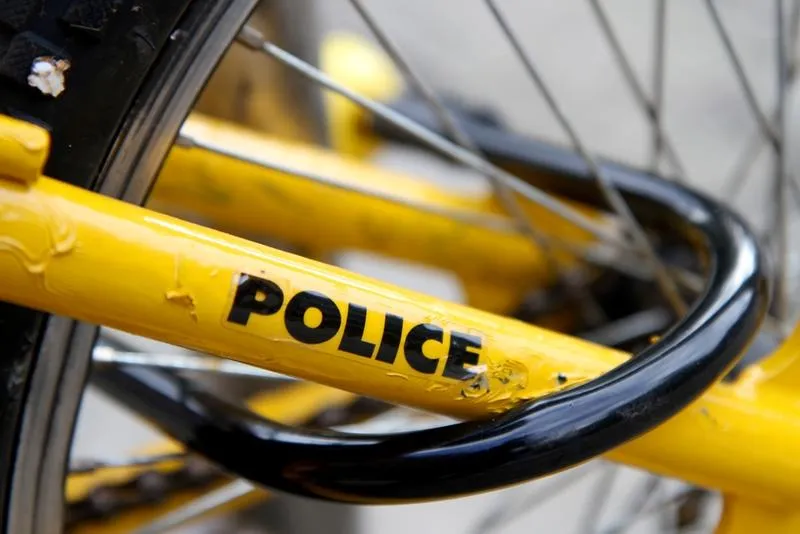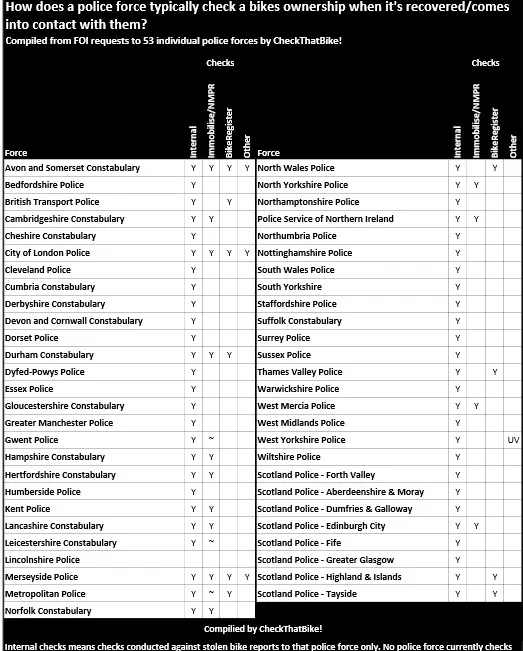More than 500,000 bikes are stolen every year in the UK, according to Check That Bike!, a open-source database of stolen bike serial numbers. Further, most UK police forces do not check national databases like Check That Bike! as a standard procedure, claims site founder John Moss. However, others, like BikeRegister managing director Andrew Knights, contest Moss' assertion.
Moss, who set up Stolen Bikes UK and won £45,000 to set up Check That Bike!, made Freedom of Information (FOI) requests to every police force in England, Scotland and Wales. He found that all forces apart from Lincolnshire Constabulary – which didn't reply – checked recovered bikes against their own force wide database. However only 14 forces said they cross-checked the recovered bike with Immobilise and just ten with specialist provider, BikeRegister.
If the results are accurate it means theft victims could stand little chance of getting their bike back if it is recovered by a different police force – even if they have registered it with services such as BikeRegister or Immobilise.
BikeRegister's Knights, however, contested the figure and said it was a “commercial fact” its database had been used by every police force in the country, and questioned the wording of the FOI requests.
According to Moss’ FOI requests, just three forces – Avon and Somerset, City of London and Merseyside checked four or more sources including internal databases, Immobilise, BikeRegister and other smaller databases.
Recovered bikes that aren't returned to their owner are often sold in police auctions or given to charity.
Moss said the FOI campaign to 53 forces highlighted the disjointed approach of returning recovered stolen bikes to rightful owners. He claimed a comprehensive nationwide database of stolen bike serial numbers – such as he is hoping to create with Check That Bike! Would be the most effective weapon against bike theft and ensuring stolen models stand the best chance of being returned to the rightful owners.
"Forming a national police owned database that both the police and public could check would be ideal but this would require significant investment both in time and money - something which is unlikely to happen in this current climate," Moss said. "The realistic solution is that the police release stolen bike frame numbers openly and allow developers to work on combining the data and building services for both the public and the police.”
Knights disputed the FOI requests saying the claiming the request wording dictated the response Moss received back. He told BikeRadar: “You have to go back to the FOI that was put in, because obviously the FOI request that is put in dictates the response you get.
“We have been used by every police force in the UK, that is a commercial fact. We’ve challenged John Moss on his statement," Knights said.
“In the busy months we get over a thousand searches a week from police and customers. The Met have target of one search for every reported stolen bike – that’s what they’re working to,” Knights added.
According to Check That Bike!, 536,000 bikes are stolen each year in the UK.


